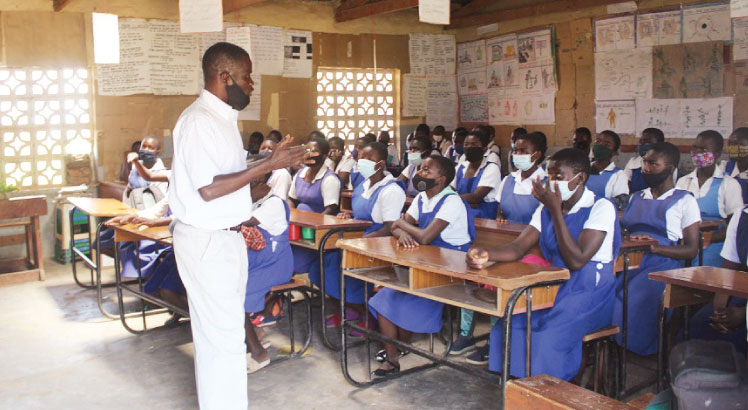Low absorption of funding affecting education sector
An analysis of the 2023/24 National Budget allocation to the education sector has revealed that only 66 percent of the K662 billion allocated to the sector has been disbursed in the financial year.
Civil Society Education Coalition (Csec), Oxfam in Malawi, Forum for African Women Educationalists in Malawi (Fawema) and Girls Activists Youth Organisations conducted a budget tracking analysis for the sector which established that only K459 billion has been disbursed, and that there is low absorption of the development budgets both for government-funded and donor-funded projects.

Among others, the tracker established that of the K16.3 billion allocated for government-funded projects, only K3 billion disbursed or 18 percent was disbursed.
It further found that some of the projects have stalled and contractors abandoned sites.
On donor-funded projects which had an allocation of K85 billion, the tracker found that only K30 billion or 35 percent was disbursed.
There is also only 35percent disbursement for the funds for teaching and learning materials, which was allocated K3.1 billion, but K1.1 billion was disbursed.
Csec executive director Benedicto Kondowe has since expressed concern over the low utilisation and disbursement of resources.
Said Kondowe: “The impression one gets is that allocation is one thing, since a budget is a mere aspiration. What is important is how much of what has been allocated in the national budget is actually disbursed.
“That is why the focus of Csec, moving forward, is on utilisation of funds, because it is not enough just to celebrate the allocation in the national budget. What will make a difference is how the funds are utilised, and that’s what we would want to see.”
He feared that 2024/25 education budget, which has increased by 35 percent, will not have much impact if disbursement and utilisation continues to be a problem.
In the 2024/25 budget, the education sector has been allocated K895 billion. The figure represents an increase by 35 percent from last year’s allocation, although in percentage terms, the allocation represents 15 percent of the national budget, a slight drop from last year’s 15.3 percent of the national budget.
Kondowe observed that various infrastructural projects have stalled or have been abandoned over issues of financial resources, abd has called for devolution of the development budget to councils.
He further proposed that government should introduce a levy to support education in the country, saying relying on the budget allocation alone will not address challenges in the sector.
In his remarks, Ministry of Education deputy director of education planning Edwin Kanyoma admitted their underperformance in the development budget.
He said: “Generally the performance of the ministry with regards to other recurrent transactions [ORT] was OK, but we underperformed in the area of development budget.
“The underperformance was in both development budget part one and part two.”
Kanyoma said the government-funded projects faced challenges of financing and contractual issues as contractors demanded review of contract sums following the November 2023 devaluation of the kwacha.
He said the development led to contractors abandoning projects.
For donor-funded projects, Kanyoma said the low absorption was due to delays in hiring a company to supervise construction of 10 900 classrooms under the Malawi Education Reforms Programme project.
However, he said the ministry will work to improve on absorption of funding to ensure that the country has enough learning space.
Parliamentary Committee on Education vice-chairperson Ephraim Nayeja said it is disappointing that a number of projects have delayed or stalled for years because of delays in disbursement of funds.
He said: “Such delays affect cost of projects. Already, contractors have been asking to have the contract amounts revised and have abandoned projects.
“We will be doing more as MPs in terms of tracking and also monitoring. One of our roles is oversight, so we have to intensify that role by monitoring such projects so that they are executed according to plan.”
The development comes amid calls for increased investment in education due to shortage of infrastructure, learning materials and other challenges.
The education sector enjoys the lion’s share of the national budget, but continues to face numerous challenges.





